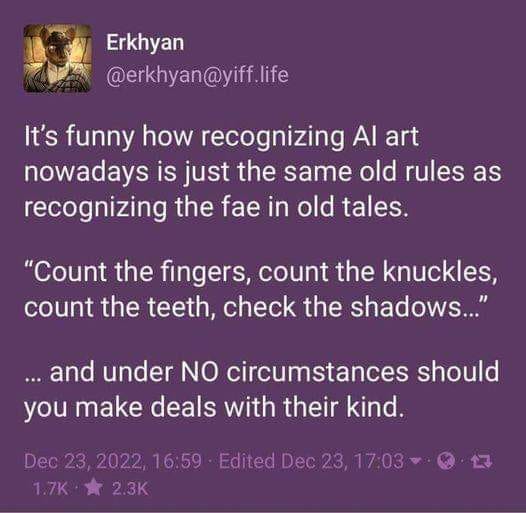Algorithms ⇆ Folklore
Welcome to the ALGOFOLK project. Subscribe for updates on crungus infestations, hallucinated fingers, shoggoths with smiley faces, glorbos, and other algorithmic entities.
Persian scholar Muhammad ibn Musa al-Khwarizmi (c. 780-850), whose foundational work on algebra in the Islamic Golden age inspired the coinage of the term “algorithm" to describe the decimal system and, more recently, rules-based computational procedures, would be surprised by the popularity of this word in our times. Or at least, this is what OpenAI's ChatGPT chatbot suggests when asked to ponder this question:
For the past two decades, algorithms have been traveling out of their established disciplinary domains of mathematics and computer science, and have been thoroughly discussed and theorized across the human and social sciences. From John Cheney-Lippold's pioneering discussion of algorithmic surveillance and control to Nick Seaver's more recent discussions of algorithms as culture, the popularity of this term testifies to the realization that we live in ordinal societies - lifeworlds that are increasingly structured by processes of measurement, quantification and calculation.
As the technical complexity of these computational processes increases, making them more difficult to understand and evaluate, humans tend to make sense of algorithms through long-standing creative strategies: anthropomorphizing them, telling stories about how they work, testing their functioning through trial and error, attempting to break or trick them, and so on. These strategies often operate in the knowledge vacuum created by the lack of technical literacy and the deliberate opacity of corporate actors. Much like earlier bodies of informal knowledge, they coalesce into a new vernacular culture, a folklore about algorithms.
At the same time, algorithms are granted more and more agency as they become integral part of automated systems of all sorts. From page ranking and content recommendation to translation and media synthesis, many of the features of the digital technologies we utilize on a daily basis are made possible by this delegation of decision-making. And when decisions taken by opaque calculative processes result in materials that humans can interpret and find meaning into - sequences of words, playlists, personalized video feeds, AI-generated images, and more - the realm of creativity is unsettled by new vernacular genres: a folklore by algorithms.
The concept of algorithmic folklore encompasses these two aspects of the relationship between creativity and automation. On the one hand, humans make sense of increasingly opaque algorithmic systems through repertoires of folk theories, urban legends, cautionary tales. On the other, the same systems contribute to the creation and circulation of new vernaculars, blurring the established categories of creativity, agency and signification. Perhaps for the first time in history, the medium is the message, but also the messenger.
There are countless examples of algorithmic folklore. Attentive readers latch onto recurring words like “delve" to identify LLM-generated text, amidst rumors that AI is developing its own language (it wasn't). Counting fingers in photos of celebrities becomes a conspiracy-fueling pasttime. Reddit users invent a fictional videogame feature to trick web scrapers into publishing automated news stories about it. AI-generated images of medieval frogs and baby peacocks flood the internet, poisoning search engine results. TikTok users embrace the #xyzcba hashtag believing an urban legend about its magical effect of boosting recommendations, which in turn makes it actually work.
This is where the ALGOFOLK project comes in. From 2024 to 2028, we will delve into the production, circulation, and interpretation of algorithmic folklore across communities, platforms and countries, with the goal of theorizing - as per our project title - “the mutual shaping of vernacular creativity and automation". Funded by the Trond Mohn Foundation and based at the University of Bergen’s Center for Digital Narrative, our team is working hard at setting up a wide variety of outputs, including this blog, a podcast, a lexicon of key terms, and more.
If you want us to keep you posted, then you should tap the button below.





